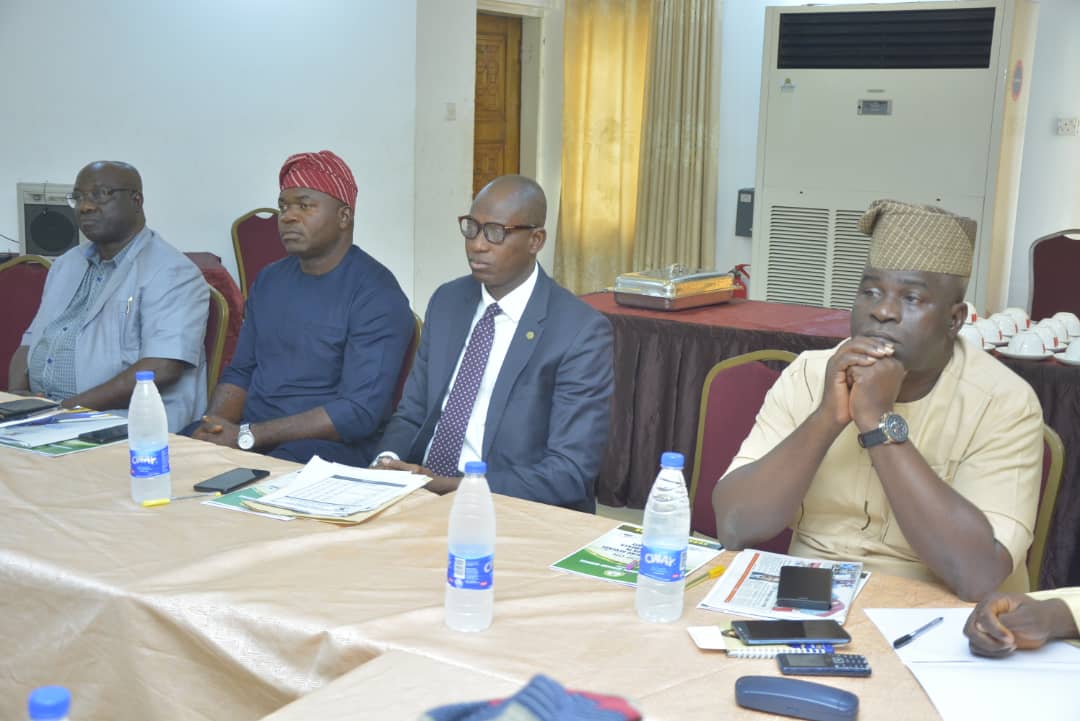
Revenue committees in local government and local council development areas of Lagos State will adopt the professional standards of the Lagos State Internal Revenue Service, LIRS to improve collection and increase internally generated revenue.
This was the resolution of stakeholders in the revenue collection system in local governments at a workshop held in Lagos last week to deliberate on the prospects of professionalizing revenue collection in the local government areas and local council development areas.
Sponsored by the Lagos State Internal Revenue Service, it featured contributions from representatives of the conference of council chairmen, the Local Government Service Commission, the body of council managers, council treasurers, human resources officers, and chairmen of revenue committees.
In his keynote address, LIRS chairman, Mr Ayo Subair, represented by the Station Manager, Ikeja, Mr Segun Tijani highlighted provisions of the Constitution that empower the local governments to collect revenue.
Citing the Fourth Schedule and Sections 162 in the 1999 Constitution and the Local Government (Approved Levies) Law of 2010, Subair said the laws mandate local governments to act professionally in the estimation, assessment, and collection of revenues.
According to him, section 6 (4) of the Local Government Approved Levies Law states that “the revenue agent to be appointed by the local government authority should be a chartered tax practitioner or have as the head of its tax unit, a chartered practitioner.”
To further protect revenue collection, Subair enlightened the participants that the House of Assembly enacted the State and Local Government Public Finance and Management Law with the provision in section 57 for a Local Government Revenue Committee.
He said the failure of local governments to manage revenue collection professionally created a lot of problems for the state government and led to the enactment of laws that made the state the agent of the councils in collecting land use charges, signage, and advertising, and lately the management of parks.
Despite the challenges, Subair recommended nine policies to transform the council areas to take professional charge of their revenue so that they can meet the expectations of the citizens.
These include training, internship, compliance with due process, provision of incentives for meeting targets, badges for easier identification of revenue staff, adoption and application of technology, the introduction of standards for engaging consultants, and rapid career progression.
Also addressing participants, former board secretary of the LIRS, Mr. Bicci Alli urged council areas to introduce and maintain professionalism in revenue collection to encourage the state to have more confidence in their ability to collect their revenues.
He said of all tiers of the federation, the local government system remains the only tier whose revenues are made with the Constitution and do not need any act of the state House of Assembly or the National Assembly to validate its collection.
Alli, who, at various times, chaired the state internal revenue services of Osun and Oyo explained that modern revenue collection requires skills in technology, data gathering, analysis, accounting, and statistics.
He said there are taxation applications that can be deployed to enumerate and estimate the taxable population to promote efficiency.
The workshop participants adopted the revenue committee model of Igbogbo-Baiyeku LCDA and the need to define the boundaries between the traditional authorities and the local government currently in progress at Ejigbo LCDA following the presentation of both chairmen, Hon. Sesan Daini and Hon. Monsuru Bello Obe respectively.
Daini explained how his decision to set up an independent revenue committee with its staff increased the council’s revenue from N70 million in 2017 to N180million last year.
Obe suggested that the workshop should also involve traditional rulers to enlighten them on the limits of their powers over revenue items in the local government.
Reviewing the presentations, Razaak Amodu, the Director of Local Governments, who represented the Special Adviser to the Governor on Local Governments & Community Affairs, Hon. Robert Kayode and the Commissioner in the Lagos State Local Governments Commission, Hon. Olubowale Sosimi, who stood in for the chairman, Hon. Kamal Baiyewu praised the LIRS for sponsoring the workshop and adding value to the performance of the local governments.
The council-manager of Lagos Island Local Government, Mr Olujobi who spoke on behalf of his colleagues thanked the LIRS and the consultant, Mr. Kehinde Bamigbetan of Korki & Associates for the vision in organizing the workshop to sensitize the council administrators to the need to transform revenue collection for efficiency.
The council treasurer of Oshodi-Isolo Local Government Area, Mr Adebiyi, who chairs the body of treasurers said the workshop has revealed that there are laws to support the professional management of revenue collection in councils and that it is feasible to raise revenue by implementing them.
He pledged the cooperation of council treasurers as members of the revenue committees to its success urging the chairmen to ensure that the statutory duties of treasurers are protected.
Speaking on behalf of the human resources officers in the local governments, their chairman, Dr B.O. Alli-Balogun commended LIRS for the initiative and appealed to council chairmen to vote for more funds for training revenue collectors on the new skills to achieve the workshop’s purpose.
In her vote of thanks, the council treasurer of Surulere Local Government Area, Mrs Taiwo Danso urged the conference of local government chairmen to organise another workshop on the implementation of the structure of the revenue committee using the Igbogbo-Baiyeku model.



